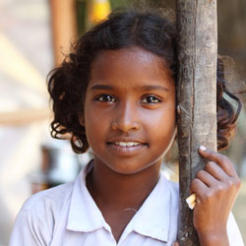Aid groups have hit out at the UK government’s decision to stop financial aid to India by 2015, arguing that the move is premature given the levels of extreme poverty which remain in the emerging economic powerhouse.
International development secretary Justine Greening this morning announced that the government will not provide any new financial aid to the country as of today, however existing – already reduced - commitments will be honoured. The government says that the decision is in response to India’s economic transformation over the recent past and comes on the back of Greening’s visit to the country earlier this week.
Instead of financial aid, the UK government’s involvement in poverty alleviation in the country will focus on the private sector and skills sharing. The decision not to add any new financial commitments before 2015 will save the government more than £200m.
Greening said: “India is successfully developing and our own bilateral relationship has to keep up with 21st Century India.”
'Premature' say aid groups
However, aid groups claim that the removal of UK government funding is premature.
Phil Bloomer, Oxfam’s director of campaigns and policy, said: “We're concerned that completely withdrawing British aid to India by 2015 is too hasty.
"Today's announcement puts the onus on both the UK and Indian governments to demonstrate how any changes to aid, and future development co-operation, puts the poorest people first. Despite the fact India is a country of growing wealth it is also a hugely divided country with extreme levels of poverty and inequality. The scale of the challenge remains huge."
Save the Children’s director of advocacy Kitty Arie supported Oxfam’s view that topline economic progress did not equate to a lack of need in the country, and echoed the line that the cut was too soon.
“We agree that in the longer term, aid to India should be phased out as the country continues to develop, but we believe that the poorest children will need our ongoing help, and to cut bilateral aid in 2015 is premature.
“We welcome the UK’s commitment to provide technical assistance post-2015, and believe that even if aid is cut to the Indian government, the UK should explore ways to support Indian non-governmental groups that address the needs of the poorest and their work tackling the tough issues that are the obstacles to wider progress.”
ActionAid's head of advocacy Melanie Ward said her organisation was "concerned" about the decision.
"India is an example of the changing face of global poverty and a fast moving economic landscape but the reality is that it is a country with more poor people than in the whole of sub-Saharan Africa," she said. “It is precisely because of the success of aid and development that some countries are no longer low-income."
WaterAid, however, was less critical of the government's decision. However Margaret Batty, the charity's director of policy and campaigns, also pointed out that 28 per cent of the Indian population continues to live below the national poverty line.
“We welcome the British Government’s decision to continue to provide technical assistance to improve the lives of the poorest people in India,” she said.
India raising more money internally
Many international NGOs have recently set up offices within India, so that they can fundraise from locals as well as bring money in from overseas.
In an interview published last month in civilsociety.co.uk, Indian fundraising specialist Surat Sandhu said that the country had begun to effectively fundraise from within its own burgeoning middle class, but that such attempts were still in infancy.









